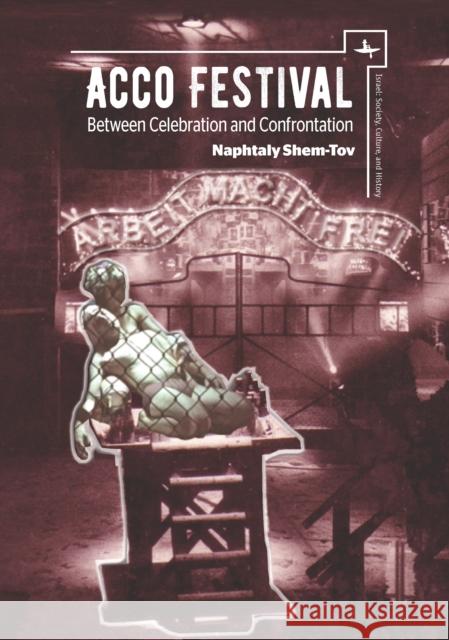Acco Festival: Between Celebration and Confrontation » książka
Acco Festival: Between Celebration and Confrontation
ISBN-13: 9781618115119 / Angielski / Twarda / 2016 / 244 str.
This research follows the history ofthe Acco Festival for Other Israeli Theatre from 1980-2012, chronicling it as a site of celebration as well as confrontation. The Acco Festival is presented as a borderland that brings together established mainstream directors and actors, alternative artists from the fringes, and Acco's Jewish and Arab residents. The book explores the festival's artistic direction; repertoire; organization, budget, and infrastructure; reception; and the Acco host community.
This book follows the history of the Acco Festival for Other Israeli Theatre from 1980-2012, chronicling it as a site of celebration as well as confrontation. The Akko Festival is presented as a borderland that brings together established mainstream directors and actors, alternative artists from the fringes, and Acco’s Jewish and Arab residents. The book explores the festival’s artistic direction; repertoire; organization, budget, and infrastructure; reception; and the Acco host community.“The significance of the Acco Festival as a hub of artistic and social provocations can hardly be overestimated. Naphtaly Shem-Tov’s book offers an overview of three decades of avant-garde performances, including their controversial themes and innovative settings. Politics is the analytical key to the repertoire as well as to the organization of the festival. In addition, the role of Acco as the host community is carefully investigated. Altogether, an exemplary way of presenting this influential theatre festival.”
—Willmar Sauter, Professor of Theatre Studies, Stockholm University“This book is the first comprehensive inquiry into “marginal” theater in Israel, whose dimensions—in terms of number of productions—have long equaled that of “mainstream” theater. The exploration of the Festival repertoire focuses on several topics: Jews and Arabs, the Holocaust, and women. The work is interesting, clear, innovative, and well-documented. The chapter on the organization of the Festival is fascinating and unique and is only the second study of Israeli theatrical organizations since the study of Emanuel Levi on Habima in 1981! While this work “dialogues” with “Festival” research and the related field of the sociology of theater, it never gets lost in the fog of jargon; Shem-Tov clearly shows the artistic and social story of a central institution in Israeli culture.”
—Dan Urian, Professor of Theater Arts, Tel Aviv UniversityNaphtaly Shem-Tov is a senior lecturer in the Department of Literature, Language and the Arts at The Open University of Israel. His research focuses on social aspects of Israeli theatre and applied theatre. Shem-Tov’s publications include the Hebrew-language book Improvisational Teaching (Tel-Aviv: MOFET), which examines improvisation as a pedagogical tool and a mode of knowing.











